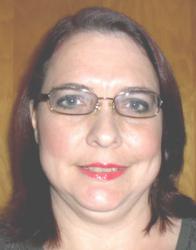Can sales skills really be improved “overnight”? They can when you realize that selling is more about the customer than it is the salesperson. The old school “hard sell” is no longer effective, and that sales technique has led to consumer distrust. It’s true that buyers shy away from salespeople because they don’t want to be “pressured” into buying something more than what they need.
The new sales approach is more customer-centric. Instead of being about making the biggest sale, it’s about making sure the customer gets what they really need. To that end, here are 10 tips that really can improve your sales skills overnight.
1. Make a Friend
At the end of the day, ask yourself how you impacted customers on a personal level. Did you just point them in the right direction, or did you make a conscious effort to really interact with them?
John Tschohl of Service Quality Institute in Minneapolis tells Aqua Magazine, “There is nothing more valuable to the customer than their name, so remember it and greet the customer personally on their next visit.” Commit to introducing yourself to each customer and asking their name, then use their name in conversation.
Another way to build rapport is to notice their appearance. Did you like their shoes, earrings, scarf, hat, tie? Ask where they bought them as you find a common ground on which to relate.
2. Ditch the Pitch
Dump the sales script and start asking open-ended questions to discover what the customer wants and needs in a spa. The goal here is to understand the customer and what motivates them to purchase a spa. What factors influence their decision-making process? Asking questions helps ensure that you, as the salesperson, have a clear understanding of what the customer wants.
Dump the sales script and start asking open-ended questions to discover what the customer wants and needs in a spa.
When you understand what the customer wants and/or needs in a spa, you can lead them to the best product for them rather than the biggest sale for you. Make a commitment to ask the right questions and really listen to the answers.
3. Focus on Value
A value proposition is a statement that tells customers how your product can improve their lives. As a salesperson, it is important to know the business’s value proposition. Even more important is understanding the difference between what the business perceives is the value their products deliver and what customers perceive is the value.
The key is to be up-to-date on customer needs. You interact with customers every day, so take a minute every day to think about the needs of the customers you served. How can you use the value proposition to help you focus on and meet customer-specific needs?
4. Challenge Perceptions
Challenging customer perceptions often boils down to educating them about your products. As a salesperson, you’re probably aware of many inaccurate customer perspectives regarding spa purchase. When a customer reacts negatively to discovering spa pricing isn’t based on seating capacity, it’s your job to educate them as to why.
Challenging customer perceptions often boils down to educating them about your products.
Another example of challenging customer perceptions is when a customer says they want a small, low-cost spa with the just the basics, hot bubbly water to relax in. You can take this opportunity to explain how wonderful hot water is for tired, sore muscles and for stress, and explain how the different types and locations of jets can ensure the hot tub gets enough use to justify a little more expense.
The customer perception is that hot, bubbly water is hot, bubbly water. Your perception is that it is much, much more. The challenge is to make your perception their perception, too.
5. Honesty Is the Best Policy
This should go without saying, but we’ll say it anyway: Be honest! Customers appreciate it when salespeople are willing to openly discuss the pros and cons of products in terms of what the individual customer is looking for. Don’t be afraid to tell them something they may not like about a product. Customers will trust your opinion more when you present the better option for them (especially if that option costs a little less).
6. Add, Up, and Cross
When you take the time to get to know your customers, it becomes easy to add-on, upsell, and cross-sell. Think about what extra value you can provide customers in the way of steps, hand-rails, umbrellas, covers and cover lifts. Remember to include services like automatic delivery if your store offers it. Sometimes, customers don’t know they need something, and that’s where you make your add-on sales.
7. Learn from Mistakes and Successes
Every salesperson has good days and bad days. The questions you need to ask yourself is, “What did I do right today and how can I repeat that success?” and “What did I do wrong today and how can I not repeat the mistake in the future?” In short, pay attention to what works and what doesn’t and make a conscious effort to improve.
8. Know Your Product
To successfully sell product benefits, you must know your product. Spend time studying up on benefits and focus on explaining those benefits rather than inundating customers with information they could get by reading brochures and spec sheets. If you don’t know something, never be afraid to admit it. Make sure you always follow through with the answer, though.
If you don’t know something, never be afraid to admit it.
9. Set Goals
The importance of goals cannot be overstated. As you work to define your goals, ask yourself these questions:
- What do I do well?
- What do I need to work on?
- How can I achieve that improvement?
The goals you set should be S.M.A.R.T goals: Specific, Measurable, Realistic, and Time-Bound. Based on these goals, make a plan that defines your objectives over a specific time-period. Reviewing these goals on a regular basis is a great way to stay focused on improving your sales skills.
10. Evaluate Yourself
A pretty easy way to improve your sales skills overnight is by evaluating yourself in terms of attitude, image and manners. Customers are more likely to buy from someone with a positive attitude, so be an optimist. Focus on facts, not on fears. Image also matters, so invest a little time in a neat and tidy appearance. Never underestimate the power of good manners, either. Something as simple as not interrupting the customer when they’re talking can make or break a sale.
Empathy and understanding the other party are important, but the best way to improve your sales skills overnight is to be a better customer yourself.
As you work to improve your sales skills, it is helpful to remember the words of Scott Edinger, founder of Edinger Consulting Group, “Selling is moving somebody else to action.” One of the best ways to accomplish this through collaboration with customers and by mimicking positive sales experiences you have had has a customer. Empathy and understanding the other party are important, but the best way to improve your sales skills overnight is to be a better customer yourself.









Leave A Comment